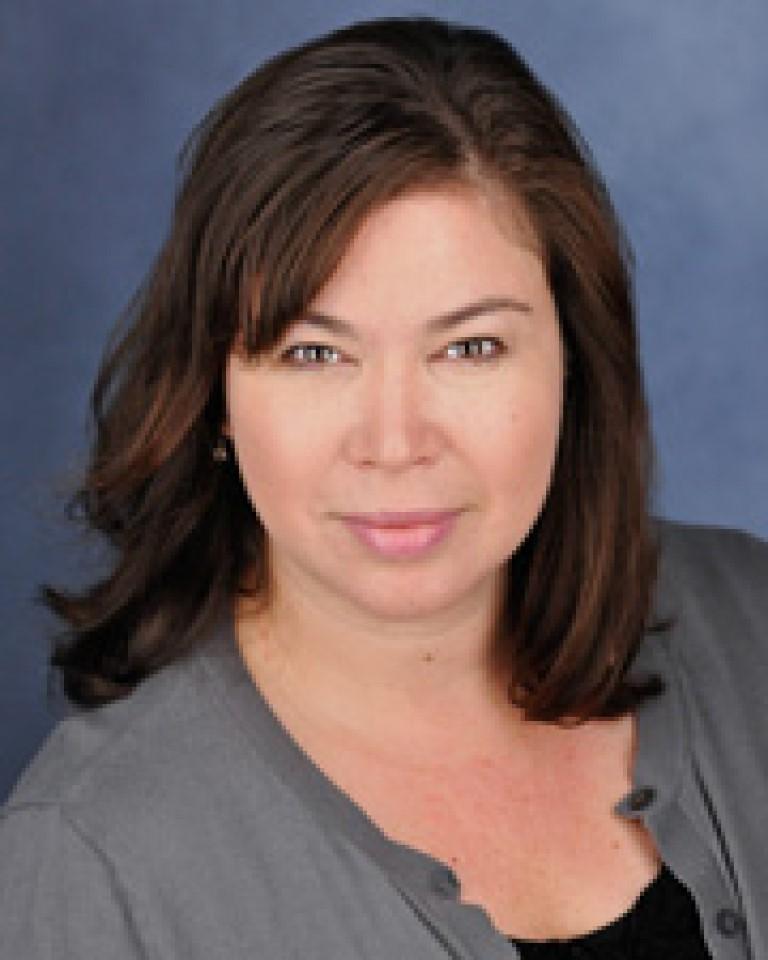Rebecca Marquez

MENTOR SPOTLIGHT | APRIL 2016
Department: Molecular Biosciences
Describe your work in a few sentences that we can all understand: I am developing new therapies to prevent breast cancer from spreading to other parts of the body, a process known as metastasis. Inhibiting this process is critical for extending breast cancer patients’ lives. Currently, I’m identifying novel small RNAs or microRNAs that can be administered to patients and either prevent the spread of cancer cells or kill the cancer cells once they have metastasized.
Q: How did you first get interested in doing research?
A: After I received my bachelor’s degree from KU, I worked for a contract pharmaceutical company. I wanted to learn more about how the drugs I was testing were really working in the body. Therefore, I began working with Dr. Richard Himes here at KU trying to better understand how certain anti-cancer drugs inhibited breast cancer cell growth. I really enjoyed the technical work and learning something new every day. I honestly have never had a boring day throughout my 19-year career in research.
Q: What do students in your discipline learn by doing research that they wouldn’t learn by just taking classes?
A: Working in a lab provides students with a much greater understanding and appreciation of how the information in their biology textbook was generated. Biology classes provide a broad foundation of knowledge, but while working in a research lab you can actually apply that knowledge to a more specific experimental question. In addition, doing research teaches students how to think more scientifically, which can help them be more prepared for upper-level classes.
Q: What do you find to be the most exciting part of doing research? What makes this line of work meaningful and interesting to you?
A: One of the things I enjoy the most is treating cancer cells with an anti-cancer agent, then determining what impact this agent has on a cancer cell’s growth, morphology, and gene expression profile. Then I search through the literature to better understand what cancer pathways are being inhibited by this anti-cancer agent. I really enjoy connecting the dots between my observations and what other researchers have also found. Then I make a hypothesis about what I think is happening and design new experiments to prove or disprove my hypothesis. There is endless information you can learn from researching this complicated disease. The most meaningful aspect of my research is that I hope to apply what I learn in the lab towards helping patients live longer and improving their quality of life.
Q: What advice do you have for undergraduates interested in doing research in your field?
A: Start doing research in a lab as early as you can. This enables you to find out if you like doing research. It’s not for everybody. It really requires a lot of patience and technical ability. But if you really enjoy it and want to make a career doing research, learning the skills early will allow you to be much more successful at the next level.
Q: For many students, doing research or a larger creative project is the first time they have done work that routinely involves setbacks and the need to troubleshoot problems. Can you tell us about a time that your research didn’t go as expected? Or about any tricks or habits that you’ve developed to help you stay resilient in the face of obstacles?
A: The work we do requires a substantial amount of troubleshooting. We troubleshoot new techniques we are trying to learn. We troubleshoot how to apply these newly learned techniques to working with individual types of cancer cells and so on. Any new treatment we are developing has to be optimized in order to measure the correct effect. The thing I like about this process is that working out each step provides a new learning opportunity while gaining experience. The next time you have to learn a new technique you are more knowledgeable about what problems you may encounter and can try to avoid those problems. The process gets faster and easier. If I’m having a particularly hard time figuring out some results or my experiments aren’t working, reading literature online always cheers me up. There is a wealth of knowledge online that can always give you one more idea or one more trick to try.
Q: How do you spend your time outside of work?
A: Spending time with my husband, family, and friends cheering on KU football and basketball! Rock Chalk!